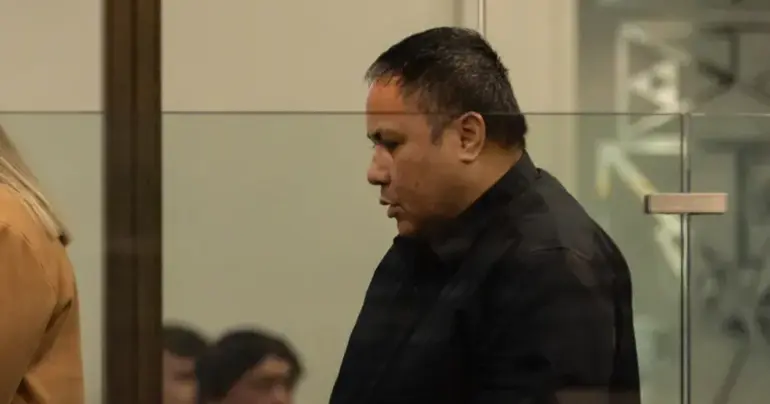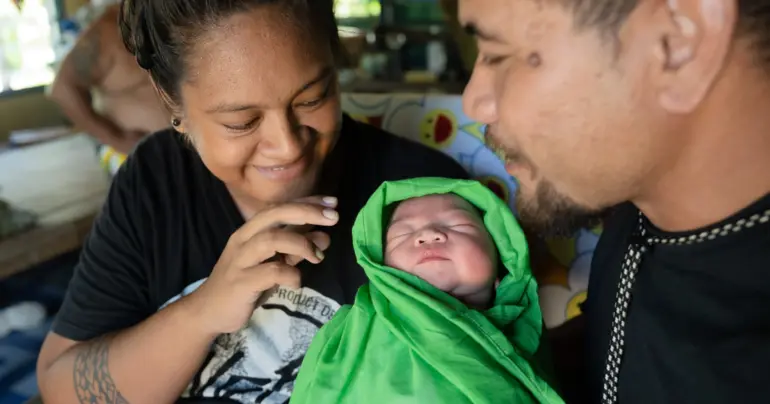Candidate eligibility rules relaxed
 By Matai'a Lanuola Tusani T - Ah Tong
•
28 October 2021, 6:58PM
By Matai'a Lanuola Tusani T - Ah Tong
•
28 October 2021, 6:58PM
Nomination rules will be relaxed for upcoming by-elections allowing third party statements to be used as proof that candidates fulfilled a legal requirement to have worked in the service of their church.
Changes to the Electoral Act have allowed for the relaxation of rules that require candidates to verify that they had worked for their churches (monotaga) - a precondition for being able to nominate for an electoral race.
In the lead-up to April's general election the issue of whether a candidate's monotaga status was legitimate sometimes became the subject of dispute in cases where village mayors refused to sign documents attesting to the fact the candidate had served as required.
The flexibility of the nomination requirement for a candidate will benefit aspiring politicians who have put up their hands to run in seven by-elections scheduled for November.
So far close to 20 candidates have revealed their intention to contest the seats that were initially won by Members of Parliament from the Human Rights Protection Party in the April poll.
During the Electoral Amendment Bill (2) debate in parliament last month, the Government noted that the changes addresses issues from the main election nomination challenges in Court.
Several candidates had their nominations rejected for the April election because they were short of the three years monotaga requirement.
Those rules include a candidate to have registered their matai and rendered their monotaga to the village for three consecutive years ending on the day of the lodgement.
The Minister for the Electoral Office, Faualo Harry Schuster said this rule has been changed to recognise the candidate’s monotaga for any three consecutive years before lodgment.
In addition the Minister told parliament last month that religious activities in the definition of monotaga to a religious institution is also recognised in their qualification.
This means a matai living in town in a non-traditional village (nu’u le mavae) can qualify to run as a candidate by using their church monotaga in that area as a requirement to run.
Former Prime Minister Tuilaepa Dr. Sa'ilele Malielegaoi had strongly opposed the changes to include church contribution in order to qualify a candidate.
He told parliament the inclusion of church contribution in 2016 was to address issues arising from individual seats because the constituencies comprised of non-traditional villages.
After that term the law was amended after the individual seats were dissolved.
Tuilaepa argued the term monotaga specifically refers to service rendered to the village not donations made to the church.
“The difficulty with this a person can wonder around then comes and do church contribution but how about the village obligation,” he asked.
“That is why it is important to honour and strengthen village protocols to observer monotaga…”
The H.R.P.P. leader said the changes will only increase the number of candidates and create more problems including making it harder to administer the electoral law.
Further changes provided for in the amendment is for another category of persons who can verify that a candidate has met the monotaga requirement.
The third person is in addition to the village mayor and women representative.
Faualo said this clause is only required if the village representatives “are unable or refuse to confirm a candidate’s monotaga by statutory declaration”.
The third person has to sit on the same village council or holds a designated position in the same church within a village in a constituency that the candidate intends to run from.
Two candidates from the Fa’atuatua i le Atua Samoa ua Tasi (F.A.S.T.) party went to Court to challenge the rejection of their nomination because the village mayor refused to sign off on their declarations.
One of those candidates succeeded in the legal challenge while the other was unable to overturn the Commissioner’s decision to reject his candidacy.
The law has also been changed to lock a candidate who challenged the nomination of their rival from withdrawing their candidacy in the election.
Faualo said the exception to the general rule is if the candidate has a serious illness and is rendered unfit to run for public office.
There was one case of an independent candidate who challenged the nomination of Tautua Samoa Party member that went up against the H.R.P.P. leader.
The independent candidate successfully disqualified the Tautua Samoa candidate and subsequently withdrew his name from the election list.
 By Matai'a Lanuola Tusani T - Ah Tong
•
28 October 2021, 6:58PM
By Matai'a Lanuola Tusani T - Ah Tong
•
28 October 2021, 6:58PM











